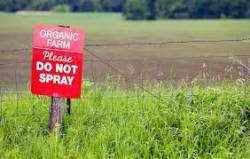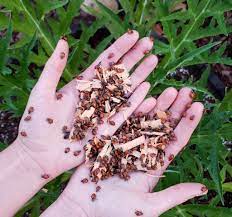How to Control Pests in an Organic Garden
Control Pests in an Organic Garden
Pests are one of the biggest challenges for organic gardeners, as they can damage or destroy crops without using synthetic chemicals. However, there are many effective ways to control pests in an organic garden, using natural methods that are safe for the environment and human health. Here are some of the best organic pest control methods that you can try in your garden.

Controlling pests in an organic garden can be challenging, but there are several methods that can be used to keep pests under control without the use of chemical pesticides. Here are some tips for pest control in an organic garden:
Gardening Tips:
- Handpicking. This is a simple but labor-intensive method that involves removing pests by hand from the plants. It works well for large pests, such as slugs, snails, caterpillars, and beetles, that are easy to spot and catch. You can use gloves or tweezers to pick them off and dispose of them in a bucket of soapy water or feed them to your chickens or ducks.
- Barriers. This is a preventive method that involves covering or protecting the plants from pests with physical barriers, such as row covers, mesh fences, netting, or collars. Barriers can prevent pests from reaching or laying eggs on the plants, and also reduce the need for spraying.
- They work well for pests that fly or crawl, such as cabbage moths, flea beetles, carrot flies, and cutworms.

- Traps. This is a method that involves luring and capturing pests with baited devices, such as sticky traps, pheromone traps, or beer traps. Traps can help reduce the population of pests and monitor their activity in the garden. They work well for pests that are attracted to specific colors, smells, or substances, such as aphids, whiteflies, fruit flies, and slugs.
- Soaps and oils. This is a method that involves spraying the plants with solutions of soap or oil that kill or repel pests by suffocating them or disrupting their cell membranes. Soaps and oils are biodegradable and have low toxicity to humans and beneficial insects. They work well for soft-bodied pests, such as aphids, mealybugs, spider mites, and scale insects.
- Beneficial predators. This is a method that involves attracting or introducing natural enemies of pests into the garden, such as ladybugs, lacewings, parasitic wasps, predatory mites, birds, frogs, and bats. Beneficial predators can help control pests by feeding on them or parasitizing them. They can be attracted by planting nectar-rich flowers, providing water sources, and creating habitats for them in the garden.Crop rotation: Rotate your crops every season to avoid pest buildup in the soil. This can also help to reduce nutrient depletion and improve soil health.
- Crop rotation: Rotate your crops every season to avoid pest buildup in the soil. This can also help to reduce nutrient depletion and improve soil health.
Remember that prevention is key when it comes to pest control in an organic garden. Maintaining healthy soil, planting resistant varieties, and providing proper care for your plants can all help to prevent pest infestations before they start.